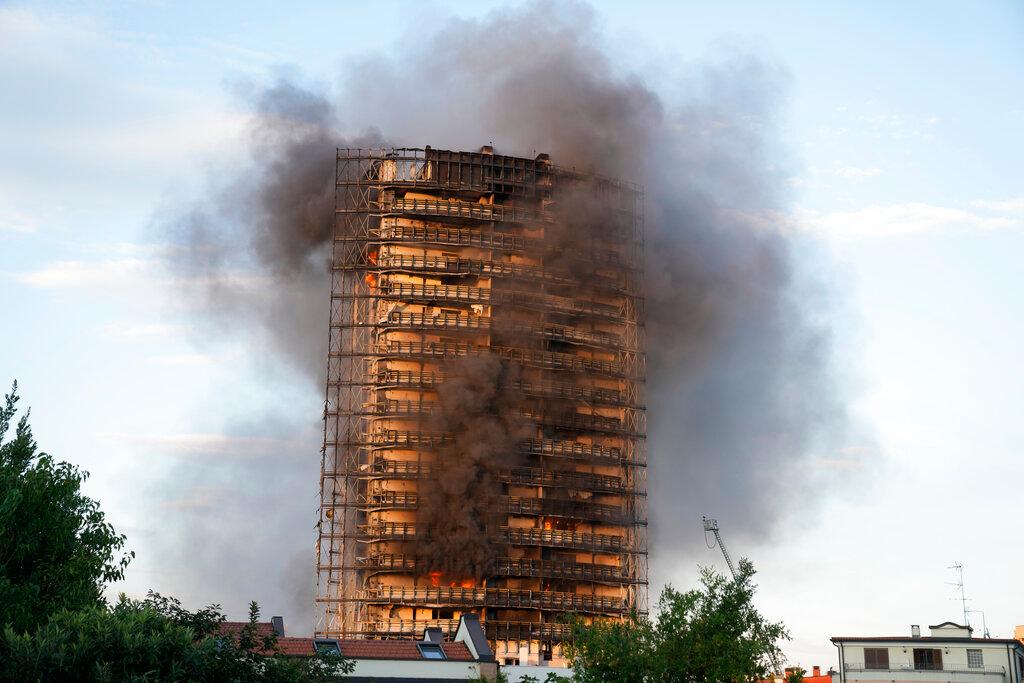MILAN—Italian firefighters tackled hot spots Monday in a 20-story apartment building in Milan that was destroyed by fire but said there were no indications that anyone was missing inside, as questions arose about the cladding that witnesses said rapidly fueled the fire.
Some cases of smoke inhalation were reported from Sunday’s blaze, but no serious injuries or deaths.





